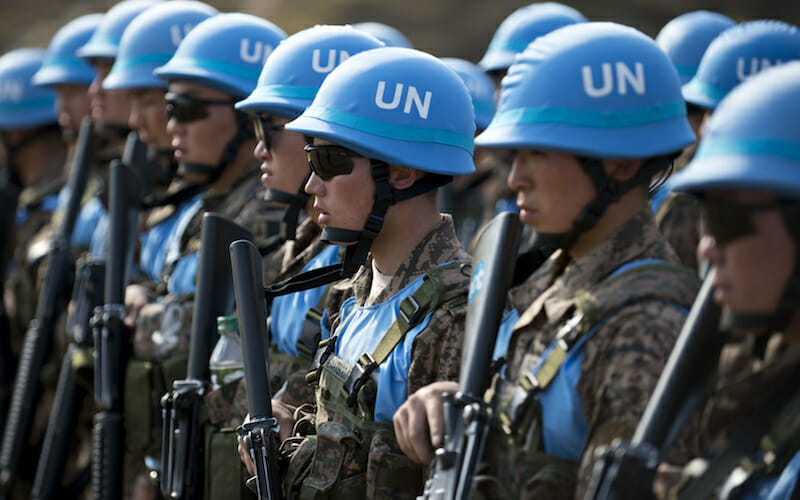
The Collapse of the UN?
This week, the UN High Commissioner for Human Rights, Zeid Ra’ad al-Hussein, who is in the process of resigning, told reporters in Geneva that the powers held by the permanent five members of the UN Security Council might cause the UN to “collapse.” According to Zeid, he pointed towards the rise of nationalism across the globe and said that the UN actions only happen when there’s a set amount of cooperation among the permanent five members of the Security Council. Speaking of the failed Syrian and Palestinian resolutions in particular, he said: “When [the permanent five] cooperate, things can move. When they don’t, everything becomes stuck and the organization in general becomes so marginal.”
As a Jordanian, it is perhaps a little unsurprising that Zeid holds this view, but if anything, he was being too mild. When the US recently decided to exit the Human Rights Council, US Ambassador Nikki Hailey called it a “cesspool of political bias.” This may have had something to do with Zeid saying the separation of children from parents at the Mexican border is “unconscionable.” Still, some things are true even when the Trump administration says it in a hysterical fit.
Indeed, the problem may have to do with the structure and functions of the UN more generally. The UN has, through accretion, picked up duties it is not necessarily capable of fulfilling. In particular, the UN has annexed responsibility for nuclear nonproliferation and peacekeeping. Its record on these issues is, to understate things a little, far from excellent. On peacekeeping, the UN’s record is becoming increasingly bleak. It has moved from Lebanon and Sierra Leone to Srebrenica, Rwanda, and South Sudan.
Regarding the latter, the egregious failure of UN forces to keep the peace in 2016 in Malakal, one of the most populated cities in South Sudan, led to an internal investigation which concluded that the displaced persons who had sought sanctuary in the UN “protection of civilians site” had “unrealistic” expectations about the ability of UN forces to keep them safe from marauding ethnic cleansers. And that’s not to mention the abuse cases from the Central African Republic in 2015.
One of the two or three most aggravating and important cases for nonproliferation was perhaps the Russian annexation of Crimea, in which the UN proved impotent, likely due to the involvement of Security Council member Russia. When Ukraine committed itself to nonproliferation by destroying its nuclear weapons in 1994, they did so based on the agreement that there would be support and respect for the sovereignty of Ukraine.
After the annexation of Crimea, a member of the Ukrainian parliament commented that countries with nuclear weapons don’t get invaded and that the decision to ditch nuclear weapons was a mistake and might be reversed. In Iran and in North Korea, the nonproliferation agenda has taken perhaps irreparable hits from the wild and confused US agenda.
Whatever noise particular organs of the UN may make about any of these actions, the constituent structure makes it almost impossible, and not merely improbable, that some of the truly tough issues will be solved at the moment. Whatever the muscle and will of the UN to advance its agenda, however golden its ends, it ultimately serves at the pleasure of certain members.
If, on the other hand, the permanent membership were to be expanded to include several pluralistic and populous democracies, like India, some of the imbalance between the “developing” and “developed” worlds could be alleviated. Better still if procedural changes, such as requiring two or three votes from permanent five members to veto actions.

